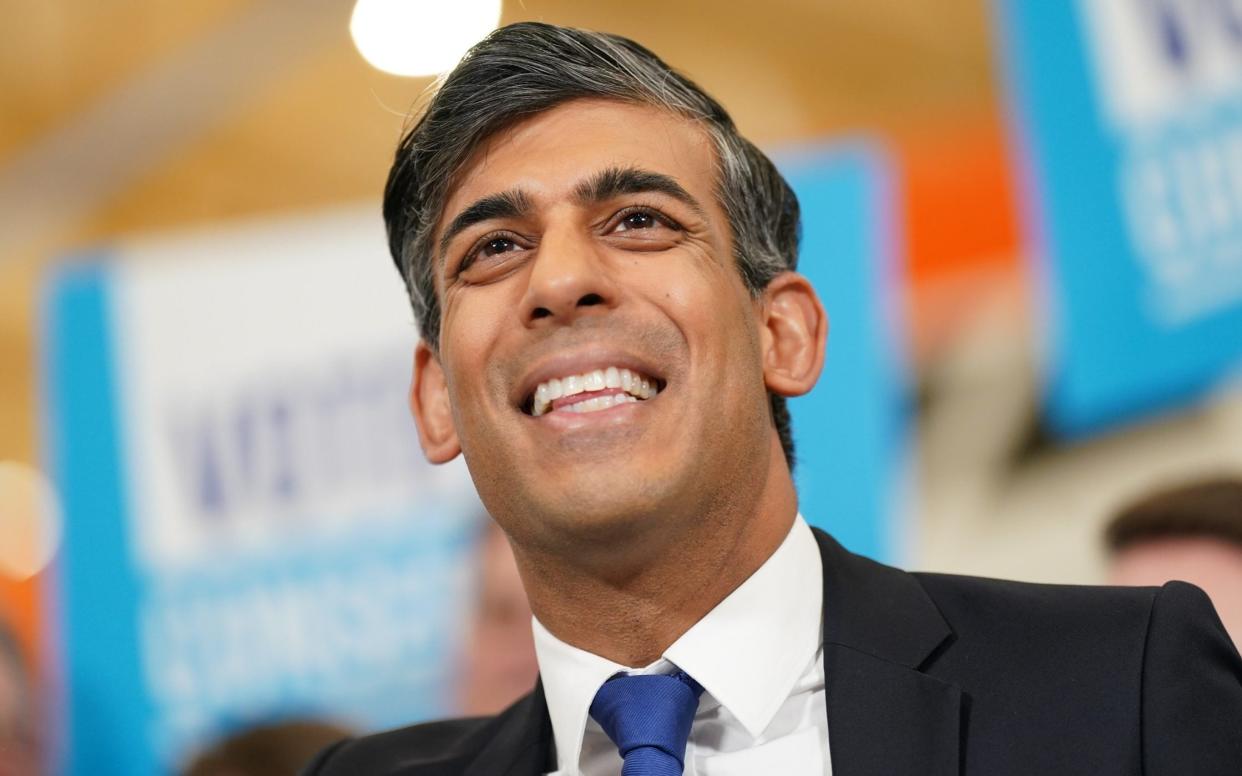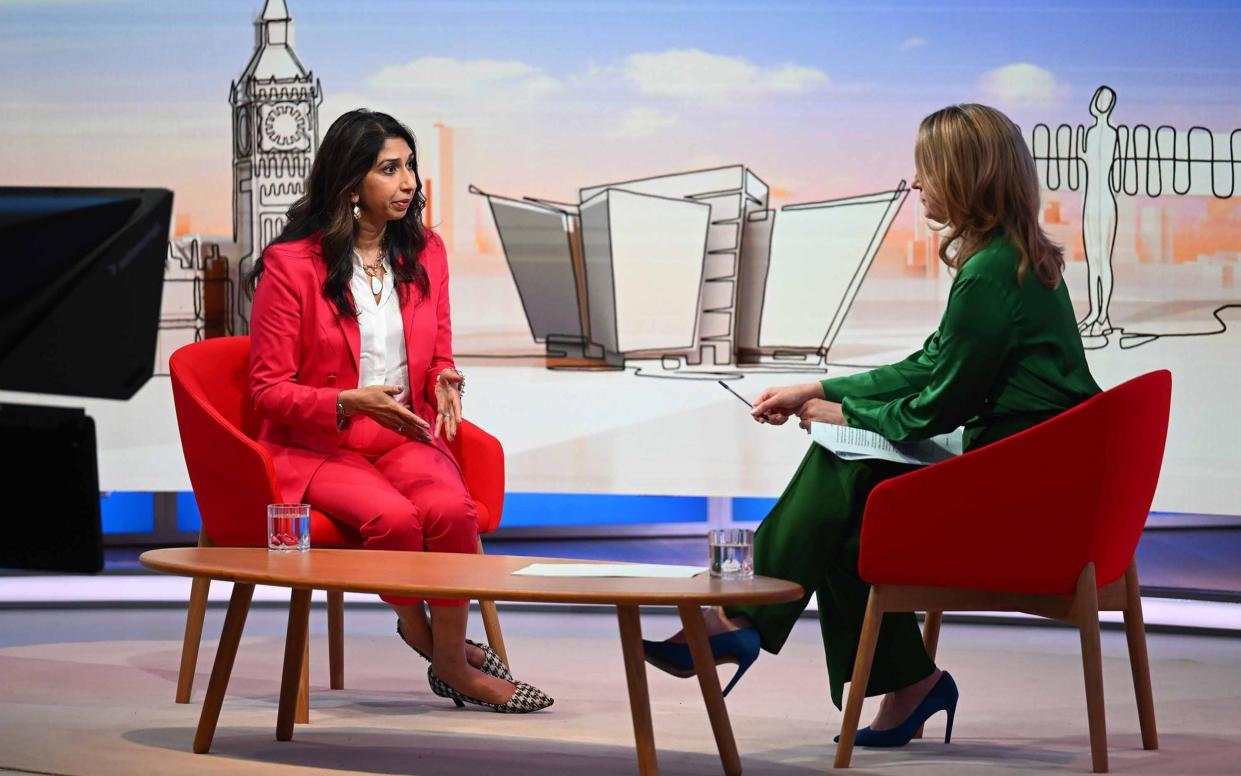No 10 'shelves plan for summer general election'

Downing Street has shelved plans for a general election this summer, The Telegraph understands, with an autumn vote now widely expected after Tory local election defeats.
Rishi Sunak is said by allies to hope that an improving economic picture and the Rwanda deportation flights expected this summer can improve his re-election chances in the autumn.
Number 10 sources had suggested that if a plot to oust the Prime Minister had materialised after the local election results, it could have triggered an election in June or July.
But Tory rebels are understood to have given up on changing the party’s leader before the general election and senior figures working on the Tory campaign now believe it is “80 to 90 per cent likely” Mr Sunak will reject a summer election, instead calling one for October or November.
One well-placed Sunak ally told The Telegraph: “I definitely think the weight of views is to go later as there’s still plenty we can keep doing to show delivery.”
With counting in the local elections now complete, the scale of Tory defeats has become clear. The Conservatives lost 397 council seats. Both Labour and the Liberal Democrats won more than the Tories.
The Tories also claimed just one of 11 mayoralities. Andy Street’s narrow defeat as mayor of the West Midlands was blamed by some Tories on support for Reform.
But a glimmer of hope was provided in analysis by the Oxford University academics Colin Rallings and Michael Thrasher who said the results pointed to a hung parliament after the general election.
Estimating what the vote share for each party would have been in a nationwide election, the academics put Labour on 34 per cent and the Tories on 27 per cent - a lead of just nine points. This is much lower than general election polling, which puts Labour about 20 points ahead, prompting hopes among some Tories that Mr Sunak could turn the party’s fortunes around with more time.
Labour shadow cabinet ministers have also admitted some Muslim voters abandoned the party over Gaza. On Sunday, one Muslim political pressure group published an 18-strong list of “demands” for Sir Keir Starmer, the Labour leader, to win back their support.
The Tory losses have triggered a public debate about which direction the party should now go in to pull off what Mr Sunak has said would be the “greatest comeback in political history”.
‘There is no spinning these results’
Miriam Cates, the co-chair of the New Conservatives, a group of new Tory MPs largely on the party’s Right, wrote in The Telegraph on Sunday that the party is “now staring into the abyss”.
She said: “It is often said that we are a ‘broad church’, but since 2016 this has at times proven to be a weakness rather than a strength. These divisions certainly create unhelpful headlines, but they also ensure that some of the key reforms demanded by our voters simply cannot happen – under Rishi Sunak or any other leader.”
She called for policies such as leaving the European Court of Human Rights [ECHR], “drastically” reducing immigration and reforming planning laws to boost house-building.
Suella Braverman, the former home secretary, warned in an interview that the Tories would be “lucky” to have any MPs left after the next election if Mr Sunak does not change course.
Ms Braverman told BBC One’s Sunday with Laura Kuenssberg: “There is no spinning these results, there is no disguising the fact that these have been terrible election results for the Conservatives and they suggest that we are heading to a Labour government and that fills me with horror.”

She too called for a move to the Right on policy.
But Mr Street, a poster boy for moderate Toryism after entering politics having run the John Lewis shopping chain, argued that a different message should be taken from his defeat as West Midlands mayor.
After his narrow defeat was declared, Mr Street said: “The thing everyone should take from Birmingham and the West Midlands tonight is this brand of moderative, inclusive, tolerant conservatism, that gets on and delivered, has come within an ace of beating the Labour Party in what they considered to be their backyard.”
However, Dame Andrea Jenkyns, the Tory MP, said on Sunday: “Every Conservative whether it’s one nation, whether it’s Thatcherite Conservatives like myself, we’ve to wake up and smell the coffee.”
She added: “It’s rubbish saying we’ve got to go to the centre of politics.”
The Prime Minister will try to get on the front foot this week, visiting a community centre in London on Monday and with new details of his welfare shake-up expected later this week.
The Bank of England’s Monetary Policy Committee will reveal their decision on an interest rate cut on Thursday. Tories hope at least one reduction will come before an autumn election, reinforcing their argument that the economy has turned a corner.
‘We must prepare for disaster’
Mr Sunak is not expected to publicly rule out a summer election until a final, binding decision has been made with his core team of advisers.
The Prime Minister’s public stance is that he expects the vote in the second half of the year, a position that leaves open the possibility of a July vote.
But some Tory figures, including the former chancellor George Osborne, have urged him to name a date, arguing the uncertainty about the timing risks causing political damage.
On Sunday, Lord Frost, the former Brexit negotiator, expressed fears that it is now too late to turn around Tory fortunes before the next general election, which must be held by next January.
Writing in The Telegraph, he said: “I wish this could be done in the remaining months before the election. We did it, after all, in 2019. But I fear it isn’t going to happen.
“So genuine Conservatives must now face the fact that we must prepare for disaster: shore up the refuges, put out the sandbags, clear the drains, wait for the flood. And then, as it recedes, see what we can grow on the new fertile land left behind.”



